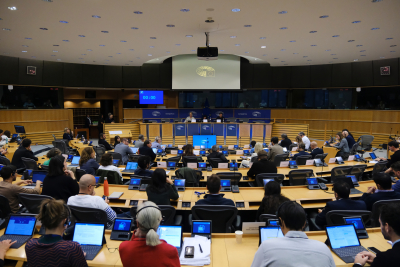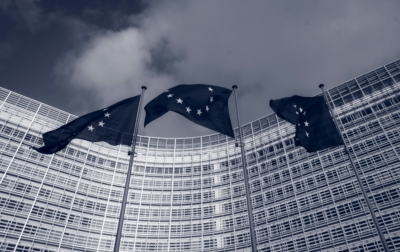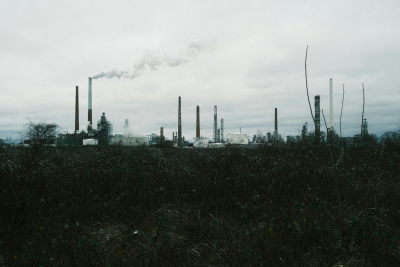Anyone who has to deal with the EU on a daily basis knows that sense of lurching from crisis to crisis that has characterised the last seven or eight years, so much so that the term ‘permacrisis’ has been coined to describe this seemingly never-ending roller-coaster. Greece, Ireland, Italy, Ukraine, migration, Greece again, Brexit etc., etc.
There is a price to pay in terms of lost opportunities and diverted energies, but perhaps the worst side-effect is somewhat paradoxical – you miss the real crisis.
To see this, think of the distinction between a fast-burning and slow-burning crisis. Fast-burning crises are vivid, tangible and require immediate action to prevent contagion. The financial crisis and ensuing bailouts of corporations and countries is a classic example. Slow-burning crises on the other hand are gradual, complex, intangible, their downsides deferred to an obscure future. The looming pensions crisis springs to mind.
As does corruption. Further evidence that the EU is in the midst of a slow-burning corruption crisis is provided by the 2016 edition of Transparency International’s Corruption Perceptions Index (CPI) published today.
Last year, four EU Member States scored less than 50, indicating serious problems with corruption – Bulgaria, Greece, Italy and Romania. This year, thanks to backsliding by Hungary and Croatia, the number is six. Only four EU member states improved their scores and two of these – Italy and Romania – from a very low base.
Croatia and Hungary’s slide comes at a time when both countries are clamping down on civil society and other independent institutions, culminating in the spectacle last year of the Hungarian government allegedly siphoning-off funds from the National Central Bank to fund artworks and property for the Fidesz party faithful.
This is the new face of corruption in Europe. Not the lawless, ‘anything goes’ environment of the immediate post-Soviet period, but the deliberate shaping of the laws and institutions to favour a ruling party and its cronies – all under the guise of a nationalist, ‘illiberal’ agenda.
That this can happen while countries are part of the EU – a community founded on the rule of law and the principle of equality before the law – will ultimately weaken the sense of attachment the citizens of these countries have for membership. It openly subverts the ideals that membership is built on. Those MEPs who have proposed more rigorous monitoring of rule of law and democracy in Member States understand this very well.
This slow-burning crisis is no less contagious that the speedier kind, as witnessed by the mutual admiration society formed by Kaczynski and Orban. And we need look no farther than Ukraine to realise how quickly a simmering corruption crisis can turn into a raging inferno.
The EU institutions have been terribly complacent about this. The euro crisis brought with it treaty changes and a raft of new institutions before you could say ‘Jacques Delors’; by contrast the Commission’s flagship anti-corruption initiative was a monitoring report, and even that has been seen constant delays. The second edition is overdue by more than a year.
This lack of urgency of all the more disappointing since, as we detailed in our 2020 strategy, the EU has the potential to drive a transformative transparency agenda that would serve as a strong counterweight to illiberal tendencies and give citizens the tools they need to hold recalcitrant governments to account. Recent plans by the European Commission to open up company ownership to public scrutiny were a glimmer of hope, only for Member States to pour cold water on the proposals.
Delivering this agenda will require the same attributes that are needed to overcome any crisis, fast or slow – leadership and vision. Whether the current crop of EU leaders have these qualities remains to be seen




